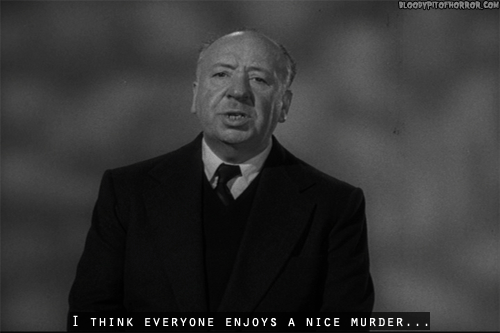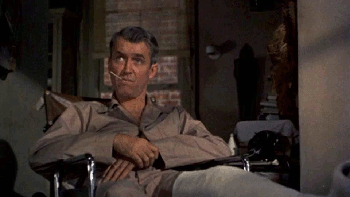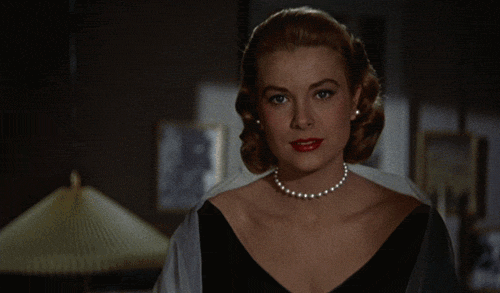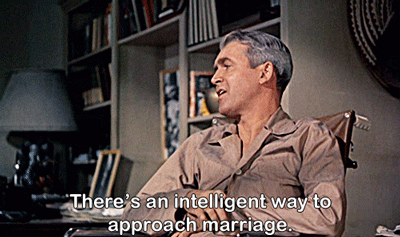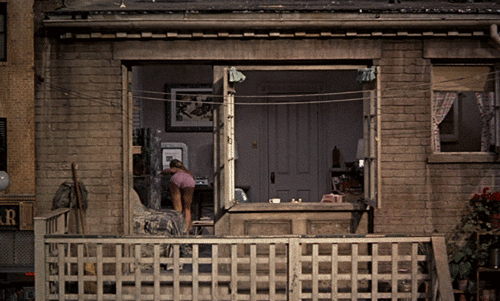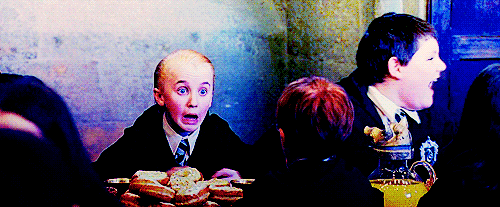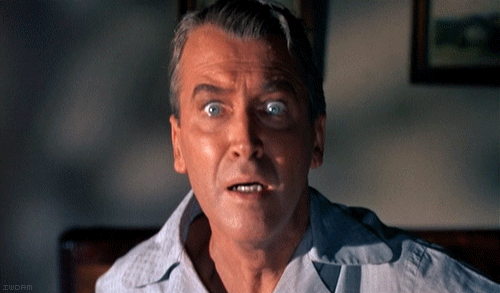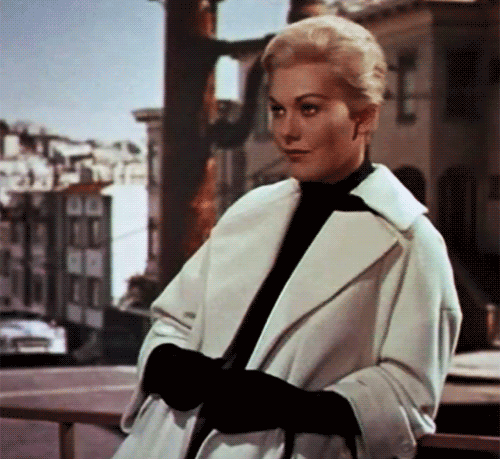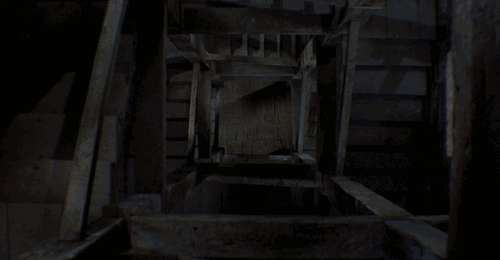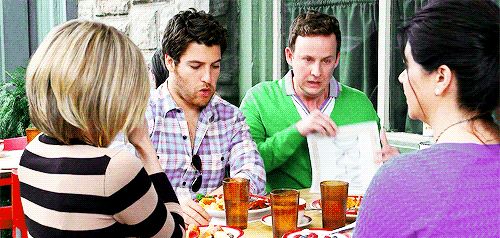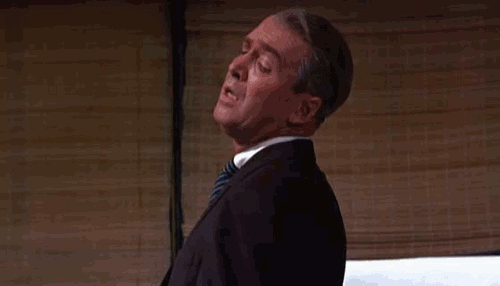So my Fall 2014 Movie Bucketlist included two horror films for Halloween (The Exorcist and Rosemary’s Baby) and one of the most classic Christmas movies of all time… and here I am five months after Christmas finally sitting down to watch it. Good thing there are no classic Easter films.
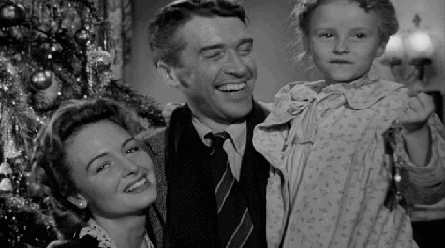
Alright, I somehow managed to go 22 Christmases without seeing this movie, ranked as #26 on the IMDb Top 250 and #20 on the AFI Top 100, the closest I have seen these lists agree since The Godfather (which is #2 on both).
The Frank Capra film is based on the 1939 short story by Philip Van Doren Stern. When he couldn’t publish the story himself, he wrote it on about 200 Christmas cards and mailed them out in 1943. Somehow this got the attention of a producer for RKO pictures, who bought the story for $10,000 with the intention of making the movie for Carey Grant. When three separate scripts proved unusable, the rights were sold to Frank Capra.
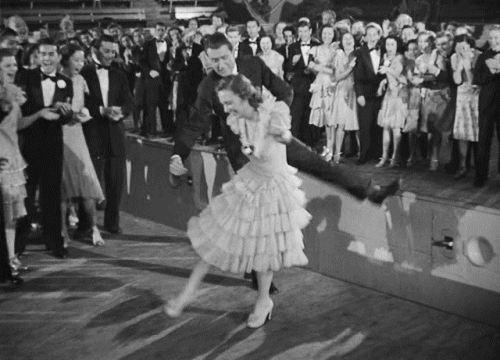
Cue the gym-to-swimming pool transformation? This is real by the way, Beverly Hills High School actually still has this. Okay, so the film was shot on the Oscar-winning sets for the 1931 film Cimarron in Encino, CA, which included three city blocks and 75 store fronts and a residential neighborhood. So crazy.
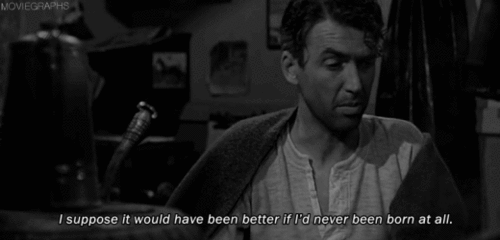
Anyway! The story follows George Bailey (James Stewart), the owner of a loan business of some kind, who decides to kill himself on Christmas Eve. Luckily, his guardian angel, Clarence, stops him and shows him what the world would be like if he had never been born. It’s basically A Christmas Carol but with a more likable protagonist.
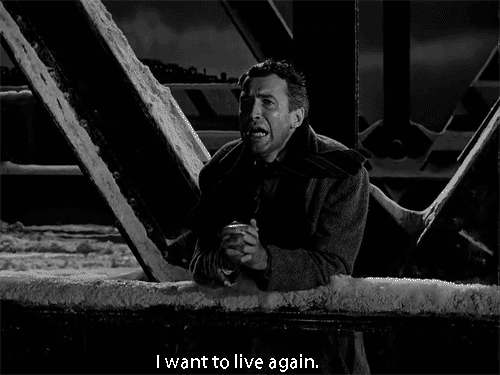
Shocker, he learns to appreciate his life. The crazy part about It’s A Wonderful Life is, while ANYONE would tell you it’s a movie about a man who sees what the world is like if he were never born… is that this 130 minute movie spends 105 minutes building to this moment. I’m not kidding, at an hour and 45 minutes into It’s A Wonderful Life, Clarence decides to show George Bailey a world where he doesn’t exist. So how did they keep our interest?
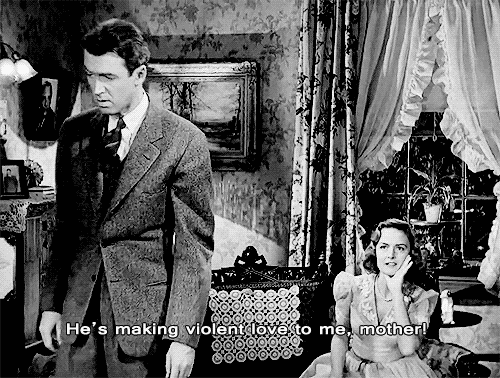
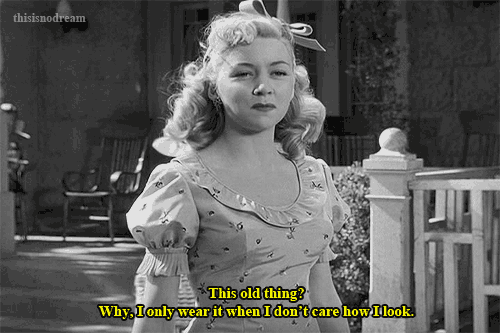
Besides great one liners and amazing supporting characters like these. The film opens on a shot of three galaxies having a conversation, and we’re basically told that they’re angels, and in order for the 293-year-old angel Clarence to get his wings, he has to help George Bailey realize that his life is worth living. This “George Bailey is going to kill himself right now on Christmas Eve, but let me first show you the first 40 or so years of his life” tactic is insanely risky, because they hardly ever return to the frame-tale. Instead, we follow George, growing up as the small-town dreamer who can’t wait to get out and explore the world, but is bogged down by sudden responsibility and empathy for his fellow man.
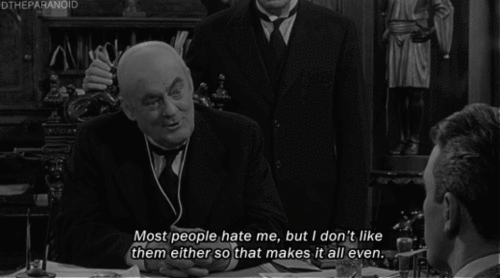
This is Mr. Potter, or, as Wikipedia describes him, “a rapacious slumlord.” Mr. Potter is the richest man in town, and is constantly trying to destroy the loan business that George’s father established to help the people of Bedford Falls. He’s Scrooge if Scrooge never learned his lesson. When George takes over his father’s work, he is equally giving in his style of business. This comes back to bite him, and a financial mistake made on Christmas Eve almost convinces him to take his own life.
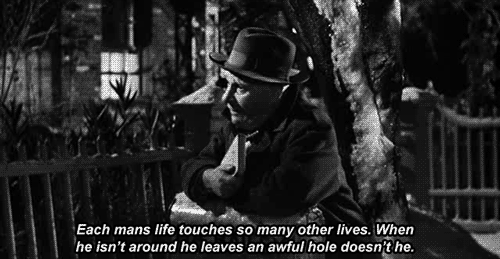
But Clarence intervenes! Apparently the world would look a lot different without George Bailey. But watching this buildup that is literally the entire runtime of The Incredibles, She’s the Man, and Psycho, I start to get kind of selfish for George. Yeah, he helped a lot of people have fulfilling and happy lives, but this small-town boy with big dreams to see the world is trapped, and he’ll always be trapped, and why should him realizing that it’s all been worth it make me happy?
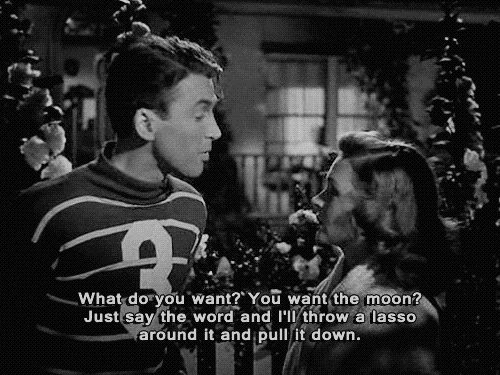
George gets married to the girl that has loved him since childhood, but did he love her? When his brother goes to college instead of him, joins the army instead of him, becomes a war hero instead of him, are we supposed to be happy because it’s all possible because of George? (The first scene shows George saving his brother’s life in their childhood).
But the film is problematic in other ways, as the characters do end up remaining slaves to capitalism regardless of where they place value in their lives. It is, however, their perspective on the importance of money that makes them better than Mr. Potter, not their rejection of it. Lots to think about here.
I don’t know. Either way I cried in the end. The movie is beautiful. It was a box office failure, reporting a loss of $525,000 on a $3.18 million budget, and now it’s one of the most televised movies of all time. Do yourself a favor and watch it. Not in color please.
